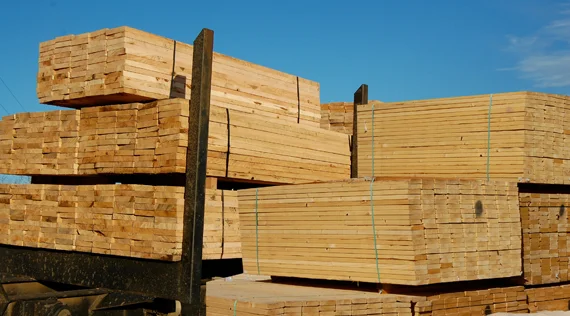Canton Mill Closure Spells Trouble for Forestry Industry
Rubber and Wood | 2023-04-13 12:57:53
Despite emissions from wood burning, the European Union has determined wood is cleaner than coal.
SEATTLE (Scrap Monster): The imminent closure of the Canton paper mill, which provides a market for one-third of the pulp wood market in North Carolina, will markedly disrupt the state's second largest manufacturing sector — forestry and logging operations, sawmills, furniture mills and the pulp and paper industry.
All told, the industry generated over $20 billion annually, or 2% of the state's economic output, according to a 2020 N.C. State Extension analysis.
The loss of the pulp wood market that relied on the mill is significant, according to Barry New with the N.C. Forest Service's forest management and development's technical division.
"The Pactiv Evergreen mill in Canton was a substantial market for lower-grade wood that gets harvested from the forest," New said. "Losing that market creates some interesting impacts on forestry, forest health, forest sustainability and forest management."
The problems for the forest industry are multiple, he explained. First off, pulp wood fetches a low price to start with. Plus it is 50% water due to the moisture content of trees, so that means transporting fresh wood to distant markets is unprofitable, he said.
Secondly, alternative markets for pulp wood are few and far between. There's nothing comparable to a pulp and paper mill as far as the volume of wood it consumes, New said, with one exception — an industrial wood pellet manufacturer.
North Carolina has four such plants that turn pulp wood into fuel pellets about the size of a new pencil eraser, New said.
The problem here is, there's not much of a market for the pellets in the state. The majority are shipped to Europe where they are used as renewable fuel to replace coal in coal-fired power plants.
Wood has not been embraced as an energy source of the future in North Carolina yet.
"North Carolina came out with a clean energy plan in the last couple years, and it does not acknowledge wood as a preferred source for the state's energy future," New said. "It's all about solar, wind and electric vehicles."
Despite emissions from wood burning, the European Union has determined wood is cleaner than coal.
"The EU signed off because wood is a renewable natural resource and the trees are replanted after they are harvested to make pellets so there's no net loss of trees that will sequester carbon," New said.
Then there's the biochar industry, which is considered an emerging market. It's a way to sequester carbon and prevent it from entering the atmosphere. Wood chips are heated in a low-oxygen environment until they're charred. The final product has a very high carbon content, is stable and can be used in agriculture to help improve soils.
Biochar is considered as a possible means to mitigate climate change because of its potential to sequester carbon with minimal effort.
"This market is in its infancy," New said.
Yet another market is for "fluff pulp," the soft absorbent material used in diapers and other sanitary products to absorb moisture.
This product, however, can only be made from the wood pulp of soft pine trees.
Without a pulp wood market, New is concerned about the sustainability of forests in the region. What's likely to happen without a nearby market is that trees 8 inches in diameter or less that aren't future candidates for the lumber market will just be left standing.
These so called "weed trees" often have stunted growth, lots of limbs, are diseased and knotted, New said. Not only do they keep producing seeds with bad genetics, but they pose a fire hazard and create an understory that isn't favorable to wildlife habitat.
"It would be great to have a pellet plant in Western North Carolina or a biomass plant that generated electricity by using wood chips. But right now, wood pellets markets are all exported and there's no real domestic market for them other than a few pellet stoves," New said.
U.S. Congressman Chuck Edwards said his staff is meeting with representatives from the forestry industry to discuss options in light of the Pactiv Evergreen closure.
"We'll be looking for ideas from them on how we may be able to help," Edwards said.
Courtesy: www.news.yahoo.com
 By
By 